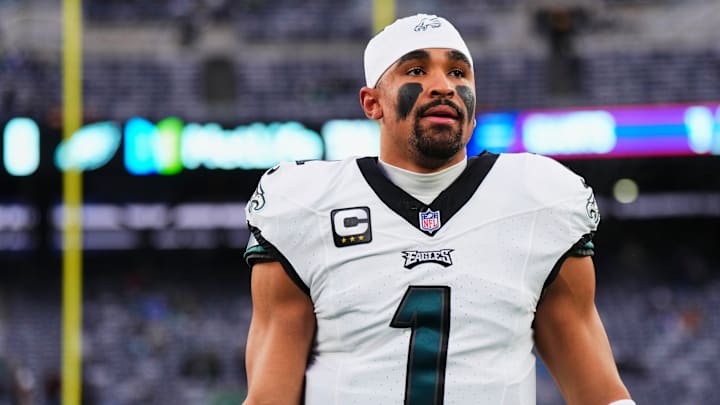In a moment no one saw coming, Philadelphia Eagles quarterback Jalen Hurts has ignited one of the biggest cultural debates of the year. What began as an online discussion about whether Bad Bunny should headline the Super Bowl halftime show has exploded into a full-blown national conversation about identity, diversity, and what it means to represent America.

During a press event earlier this week, Hurts was asked for his opinion on the controversy surrounding the Puerto Rican superstar’s rumored Super Bowl performance. His response sent shockwaves through the sports world — and far beyond it.
“If Bad Bunny isn’t a good fit for the Super Bowl,” Hurts said calmly, “then maybe the people making those comments aren’t a good fit for America’s future.”
Within minutes, the internet was ablaze. Supporters flooded social media with praise for Hurts, calling him “the voice of a new generation of athletes unafraid to stand up for inclusion.” Others, however, accused him of dragging politics into football and alienating fans who “just want to watch the game.”

But to many, Hurts’s words go deeper than celebrity or sport. They touch on the evolving identity of America itself — a nation whose biggest stage, the Super Bowl, has become more than just a football event. It’s a mirror reflecting culture, race, art, and change.
Some analysts argue Hurts is stepping into a long tradition of athletes using their platforms for social commentary — from Muhammad Ali to Colin Kaepernick. Others warn that such comments risk further dividing a fanbase already fractured along cultural lines.
Still, Jalen Hurts doesn’t seem to be backing down. In a follow-up post on X (formerly Twitter), he wrote simply:
“Music. Culture. Unity. That’s the future.”
As the debate rages on, one thing is certain — Jalen Hurts has sparked a conversation far bigger than football. Whether you agree with him or not, his words have made one thing clear: the Super Bowl is no longer just a game — it’s a reflection of who we are and who we want to become.